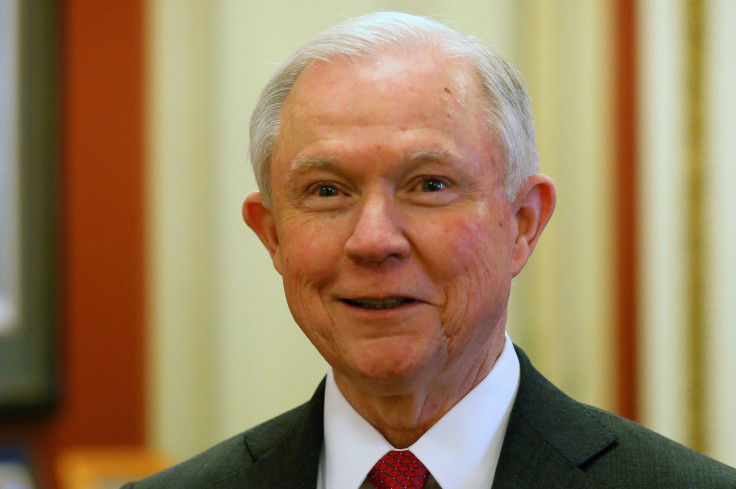Trump attorney general pick Jeff Sessions shuns KKK as protestors disrupt Senate hearing
Sessions defends record on civil rights, says he 'abhors' the KKK 'and what it represents'

During the first day of his confirmation hearing Alabama Senator Jeff Sessions defended himself against charges of racism and laid out his vision for the Trump administration's law and order mandate.
"I was accused in 1986 of failing to protect the voting rights of African Americans, and of condemning civil rights," Sessions said, noting that he was also accused of having sympathies for the KKK. "These are false charges," he said.
"I abhor the clan, and what it represents," he said, pointing out that he successfully prosecuted and sought the death penalty for a clansman that killed the black teenager Michael Donald in Alabama in 1981.
Sessions said that the attorney general "cannot be a mere rubber stamp" and laid out several priorities he would make as America's top law enforcement official.
"The recent jump in crime rates are not anomalies," Sessions said, citing that heroin use has tripled in recent years and that "illegal drugs flow across our southern border bring addiction and misery." He pointed to an overall rise in crime from 2014 to 2015, and 11% murder rate increase. "These trends cannot continue," he said.
Sessions said he would partner with local law enforcement officials to "take down" major drug cartels and "prosecute those that repeatedly violate our borders." He also expressed his belief that US law enforcement "has been maligned as a whole" in recent years.
The hearing was disrupted by several protestors. One held a sign that said "Support Civil Rights – Stop Sessions" and others shouted "No Trump, no KKK! No fascist USA!"
But the most forceful opposition to Sessions came from California Democrat Dianne Feinstein, minority leader of the Senate Committee on the Judiciary. "This is an awesome responsibility," she said, pointing out that President-elect Donald Trump said during his campaign that he would order his attorney general to prosecute Democrat Hillary Clinton. The attorney general "does not investigate or prosecute at the direction of the president," Feinstein said.
HAPPENING NOW: Protestor thrown out of Sessions confirmation hearing. Dressed as klansman. pic.twitter.com/2DPJhg7M8M
— Sam Sweeney (@SweeneyABC) January 10, 2017
Feinstein highlighted Sessions opposition to grant amnesty to the children of illegal immigrants in the Dream Act. Sessions called it "a reckless proposal for mass amnesty." He also voted against prohibiting waterboarding, which was later ruled as torture.
During the election campaign Sessions spoke against Clinton and said that if any prosecution or investigation involving the Democrat was launched that he would "recuse myself" and hand the file to a deputy. "This country does not punish its political enemies," he said.
Sessions was the US Attorney for the Alabama's Southern District from 1981 to 1993 and became the state's Attorney General in 1994. In 1986, Sessions, who was working as a US prosecutor in Alabama, was picked by President Ronald Reagan to become a federal judge, but was rejected by the Senate Judiciary Committee because of racist comments he made.
His confirmation hearing continues Wednesday (11 January).
© Copyright IBTimes 2025. All rights reserved.






















